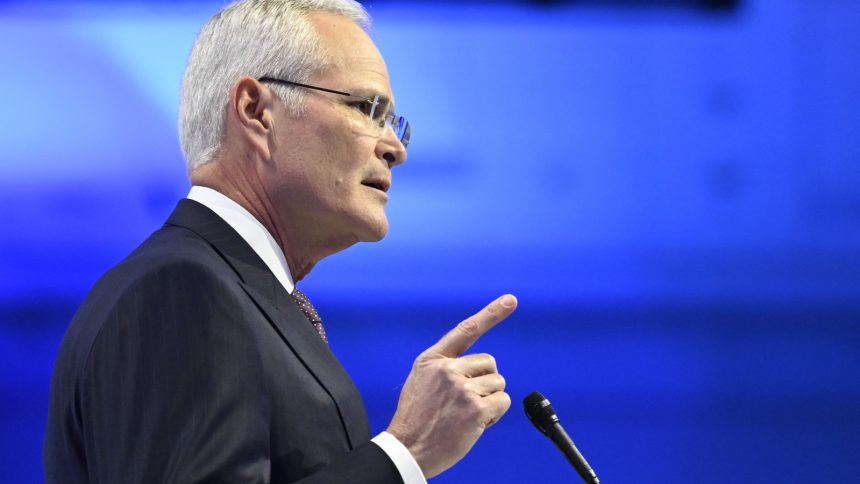Exxon Mobil CEO, Darren Woods, recently shifted blame for carbon emissions towards consumers in a media interview. Woods highlighted the cost as a barrier to achieving zero emissions and emphasized the responsibility of those generating emissions to pay the price. This stance comes despite Exxon’s own significant carbon footprint, with 730 million metric tons of CO2 from products sold in 2019 alone. The company faces pressure to reduce “Scope 3” emissions, which account for 80-95% of global oil company emissions, but Exxon is focused on direct emissions (Scope 1) and purchased energy (Scope 2) instead.
Oil companies like Exxon have a history of deflecting responsibility for emissions onto consumers. They have been resistant to setting targets for cutting Scope 3 emissions, claiming it would have negative societal consequences. However, as regulations on Scope 3 emissions are considered, companies are lobbying against stricter disclosure rules. This debate extends to the root cause of emissions and climate change – whether it lies with oil companies, governments, or consumer demand for fossil fuels.
Despite industry assertions that demand drives production, a 2022 IPCC report reveals that people demand services, not fossil fuels specifically. Demand-side solutions offer significant emission reductions potential by 2050. Climate advocates argue that oil companies bear a significant share of climate change blame due to past disinformation and deception about the impacts of fossil fuel use. Legal actions against companies like Exxon aim to hold them accountable for misleading the public.
Exxon’s CEO seeks to move past the blame game and focus on contributing to solutions for climate challenges. However, the ongoing debate over responsibility for emissions and the historical actions of oil companies continues, raising questions about accountability and the path forward towards a low-carbon future.






